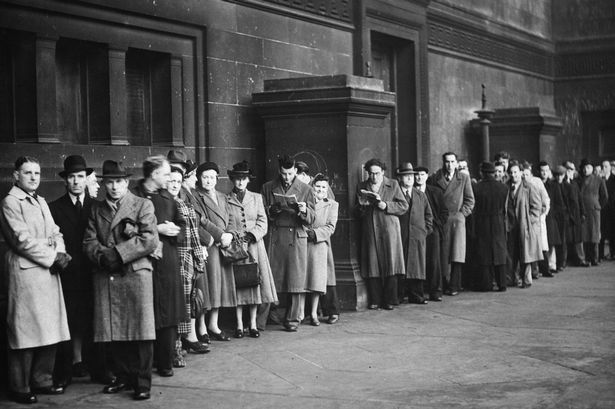It's now been 20 years since the case of one of Liverpool's most notorious murder cases was finally closed.
Making national headlines in 1949, the Cameo cinema murders rocked the city and led to the biggest manhunt the city had ever seen. Leonard Thomas, 44, manager of the Wavertree cinema, and his assistant, John Catterall, 30, were killed during a bungled burglary in March of that year
The two friends had been counting the night’s takings in an upstairs office when they were shot by two men who broke the lock off the door to steal a little over £50 in cash. The killings sparked a massive police investigation, resulting in 9,500 doors knocked on and 75,000 statements taken, the ECHO previously reported.
READ MORE: The last Beatles song, sung by John Lennon, to be released next week
READ MORE: More city centre streets to light up this festive season
But the murders and investigations placed a lasting stain on the reputation of British justice when an innocent man was executed. It was only 20 years ago in October 2003 that the family of Liverpool man George Kelly, who was wrongly hanged for the crime, received an official apology.
Police previously said the investigation would not be reopened as most of the records relating to the killings had been destroyed. It took decades for the injustice to be put right – and to this day, nobody knows for sure who committed the horrific crime.
Photographs from our archives – some unseen for years – capture moments from the investigation decades ago. The images show an exterior of the Cameo cinema, crowds outside St. George's Hall before the trial, fingerprint equipment used in the investigation and part of the scene.
Weeks after the murders , a letter arrived at police headquarters naming two suspects – petty crooks George Kelly, 27, and Charles Connolly, 26. Both men denied any involvement in the murders and, despite no murder weapon being found, they were put on trial.
A joint trial was dismissed by the judge at St George's Hall in October 1949 and separate trials were ordered. Kelly was first to stand trial alone and, despite the prosecution having no forensic evidence and no eyewitnesses, he was found guilty.
The main prosecution evidence in the trial was given by a local prostitute, Jackie Dickson and her boyfriend James Northam, who had recently been released from prison. They alleged that the plot to rob the cinema was established in The Beehive pub, when George Kelly produced a gun.
Kelly maintained that he had been drinking with his friend Jimmy Skelly at various pubs throughout the day but did not go to The Beehive. Connolly claimed to have been at a dance with his wife. Kelly was executed at Walton jail in March 1950, following what was then the longest criminal trial in English legal history. Inmates recalled that while awaiting his fate Kelly would shout his innocence to guards every day.
In 2003, the Court of Appeal posthumously overturned the conviction, declaring it "unsafe", after the case was referred to the Criminal Cases Review Commission, the body which investigates alleged miscarriages of justice. During the appeal, it emerged that a statement given to detectives by a prosecution witness, claiming a man called Donald Johnson confessed to the crime, was not disclosed to the defence.
Connolly, terrified he too would face the death penalty, was persuaded by his lawyer to plead guilty to robbery after a deal was struck with the prosecution. Connolly died in 1997 – still protesting his innocence with the support of his family and his friends. His conviction was also quashed in 2003.
Legendary Liverpool solicitor, the late Rex Makin, was peripherally involved in the case when it came to court and later acted for Kelly's daughter, Catherine, in securing the review. He recalled: "I will never forget the day George Kelly’s brothers came into my office in Hackins Hey asking for my help.
"Their brother had been found guilty and was facing the death penalty and was waiting for the formality of an appeal. They were panic stricken and I couldn’t help them because it was too far gone. Their faces haunt me to this day.
"Ever since then, and through all the years after he was hanged, there has been a concerted effort to get this case to appeal." This month marks 20 years since the case was finally closed.
Receive newsletters with the latest news, sport and what's on updates from the Liverpool ECHO by signing up here

